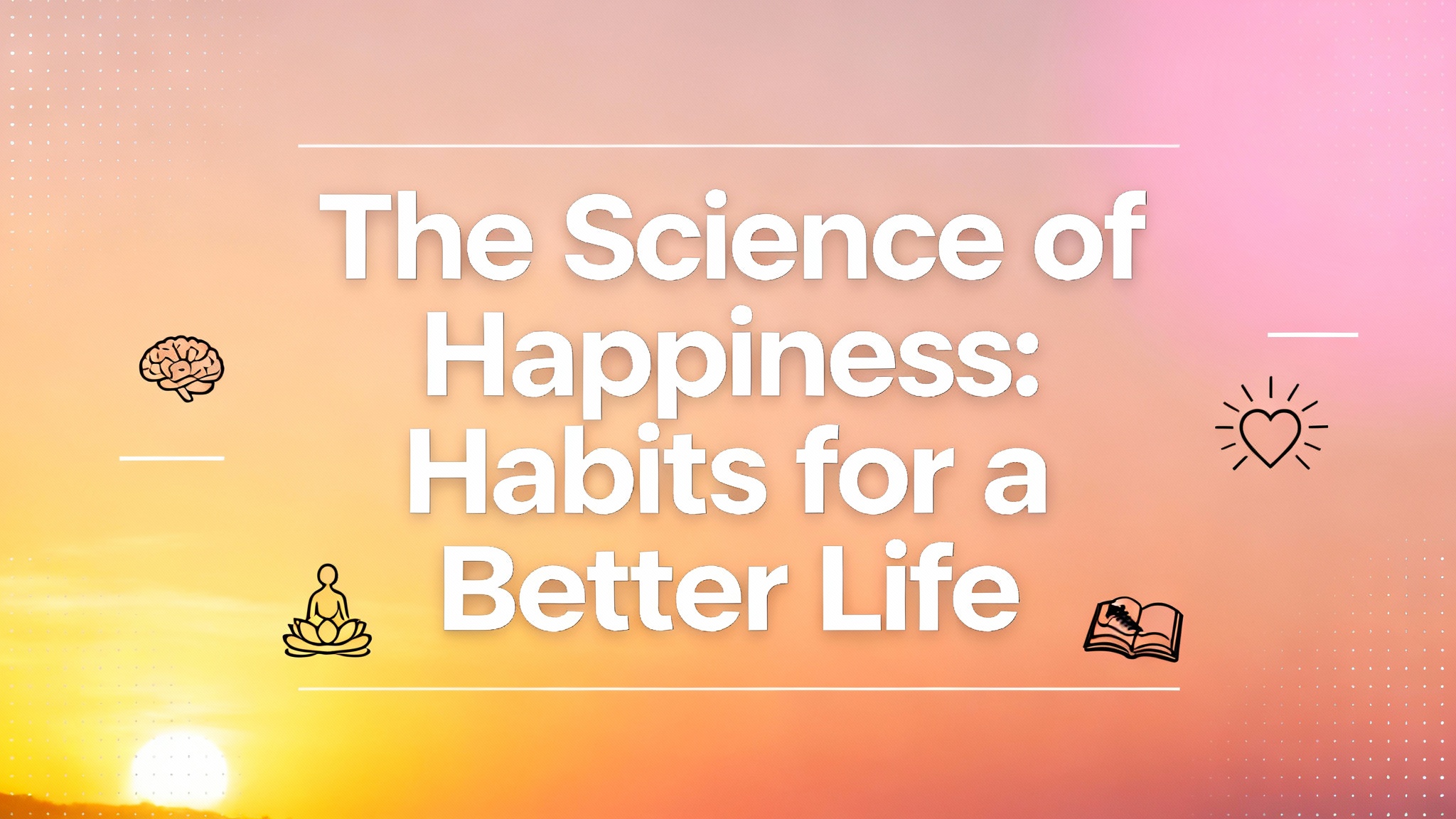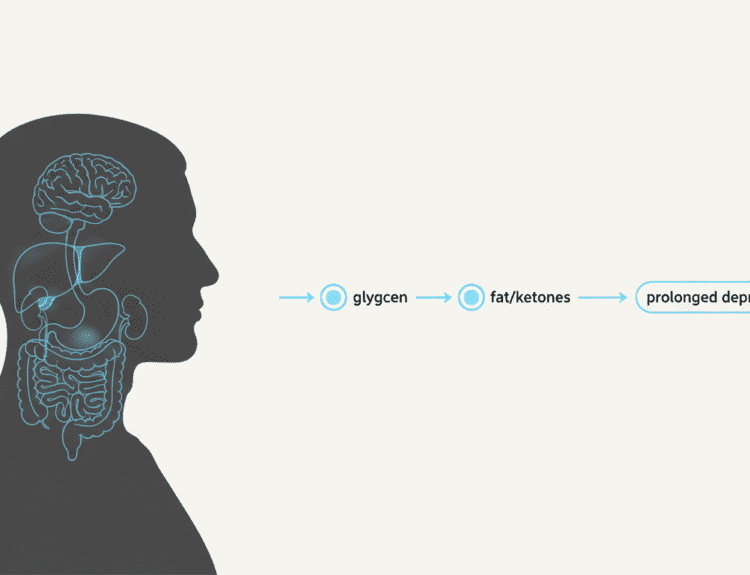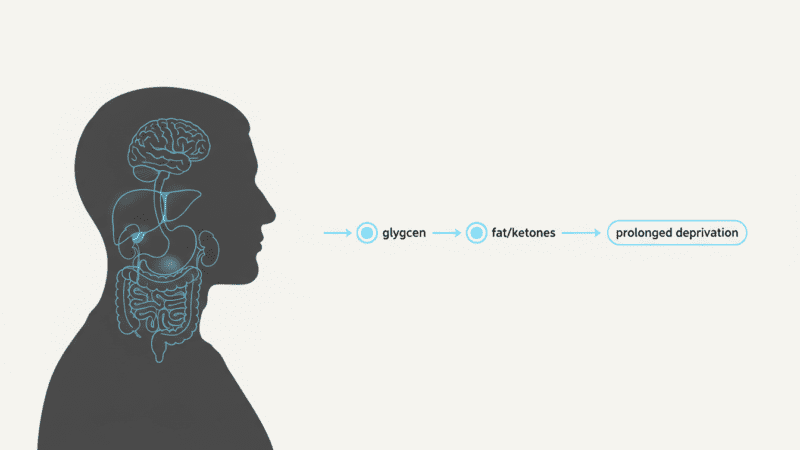Happiness—a feeling universally sought yet often fleeting—has been at the center of philosophical debate, religious reflection, and, more recently, scientific study. In the last two decades, psychology has shifted from exclusively focusing on pathology to also examining what helps human beings flourish. This movement, known as positive psychology, explores strengths, virtues, and the conditions that foster well-being. Importantly, research shows that happiness is not merely the product of luck or material wealth, but something we can systematically cultivate through specific practices.
This article explores three major evidence-based paths to well-being: gratitude, social connection, and practical tools from positive psychology. Collectively, these happiness habits not only improve mood but also foster resilience, meaning, and long-term life satisfaction.
Understanding the Science of Happiness
Happiness is often defined as a state of subjective well-being, which includes both life satisfaction (a cognitive evaluation of one’s overall life) and the balance of positive over negative emotions. Genetics and external circumstances do shape our baseline, but compelling evidence suggests that up to 40% of happiness is determined by intentional activities and habits, meaning our choices matter greatly (Greenpoint Psychotherapy).
The PERMA model, developed by Dr. Martin Seligman, breaks happiness into five components:
- Positive Emotions – joy, gratitude, love, hope.
- Engagement – the “flow” of being absorbed in meaningful activities.
- Relationships – supportive, nurturing bonds with others.
- Meaning – a sense of purpose beyond oneself.
- Accomplishment – achieving goals and striving forward (Insights Psychology).
With this framework, we turn to the daily habits that can sustain a happier life.
Gratitude: The Foundation of Happiness Habits
Gratitude is more than a polite “thank you.” It is the conscious recognition and appreciation of the good in our lives. Researchers have repeatedly shown that practicing gratitude boosts mental health, strengthens bonds, and enhances resilience (PositivePsychology.com).
Benefits of Gratitude:
- Improved mental health: Gratitude interventions such as journaling reduce symptoms of depression and anxiety.
- Better relationships: Expressing appreciation fosters trust and deepens social ties.
- Enhanced perspective: Gratitude shifts focus from scarcity and dissatisfaction toward abundance and contentment.
Evidence-based Practices:
- Gratitude Journaling – Write down three things you are thankful for daily. Research shows this can significantly boost well-being in just a few weeks.
- Gratitude Letters – Write (but don’t always send) a heartfelt note to someone who positively influenced your life. Studies from Emmons and McCullough found that this simple act increases happiness and decreases depressive symptoms.
- Daily Gratitude Rituals – Pause before meals or bedtime to notice small joys: the warmth of sunlight, a kind word, or even a personal accomplishment.
Gratitude rewires the brain. By repeatedly activating neural pathways associated with positivity and appreciation, individuals can build a stronger baseline of happiness (Positive Psychology: The Science of Happiness).
Social Connection: Why Relationships Shape Well-Being
Humans are innately social beings, and social bonds are among the most consistent predictors of happiness across cultures. The Harvard Study of Adult Development, one of the longest-running studies on well-being, found that close relationships—not wealth, fame, or social class—best predict lifelong happiness and health.
The Science:
- Social connection triggers the release of oxytocin, the so-called “bonding hormone,” enhancing feelings of trust and safety.
- Strong relationships buffer against stress, reduce the risk of depression, and even improve immune functioning (Pursuit of Happiness).
- Loneliness, by contrast, has been linked with increased mortality risk, comparable to smoking or obesity.
Cultivating Strong Social Bonds:
- Prioritize Quality Over Quantity – Depth matters more than breadth. A handful of supportive relationships greatly outweigh dozens of superficial ones.
- Active Listening & Empathy – Practicing presence and empathy strengthens emotional intimacy.
- Shared Experiences – Engaging in meaningful rituals, community involvement, or volunteering creates a sense of belonging.
In short, nurturing relationships is not optional for happiness—it’s essential.
Positive Psychology Practices: Evidence-Based Tips
Positive psychology emphasizes actionable methods to strengthen well-being. Research continues to highlight several positive psychology tips with measurable impact:
1. Engagement and Flow
“Flow” refers to being deeply immersed in an activity, losing track of time in pursuit of something intrinsically rewarding (Insights Psychology).
- Flow increases life satisfaction, creativity, and resilience.
- Examples: creative hobbies, sports, learning new skills, or work tasks that challenge but don’t overwhelm.
2. Mindfulness and Meditation
Mindfulness practices increase self-awareness and reduce rumination, which is strongly linked to depression. Even 10 minutes of daily mindfulness or breathing meditation reduces stress and improves focus.
3. Acts of Kindness
Helping others provides a sense of purpose and activates reward pathways in the brain. Studies show people experience a “helper’s high,” often feeling happier after giving than receiving.
4. Optimism and Reframing
Optimism improves problem-solving and resilience. A practical method is reframing negative thoughts through cognitive-behavioral strategies—for example, turning “I failed” into “I learned something valuable.” Optimistic thinking promotes long-term health and success (Positive Psychology).
5. Meaning and Purpose
Psychologists note that pursuing intrinsic goals—those aligned with personal values, such as growth, altruism, or creativity—brings deeper satisfaction than external rewards like wealth or status.
6. Physical Well-Being and Happiness
Well-being is tied to physical habits: exercise boosts mood through endorphins, good nutrition supports brain health, and regular sleep regulates mood-related neurotransmitters. A holistic view of happiness recognizes the mind-body connection.
Overcoming Barriers to Happiness
Of course, happiness practices do not erase hardship. Challenges such as stress, trauma, or negative thinking patterns can inhibit progress. Positive psychology encourages building resilience—the ability to bounce back from adversity:
- Cognitive restructuring can challenge distorted thoughts.
- Stress management strategies like breathing exercises and boundary setting help mitigate burnout.
- Self-compassion encourages treating oneself with the same kindness we’d extend to a friend (Insights Psychology).
Happiness, then, is not the absence of pain but the ability to sustain positive outlooks amidst life’s inevitable challenges.
Conclusion: Happiness as a Habit for Life
The science is clear: while genetics and circumstances matter, intentional daily habits—expressing gratitude, building social bonds, and practicing positive psychology—have the power to significantly enhance well-being. Happiness is not an accident but a skill, cultivated through repeated choices that align with our values and nurture our connections.
By committing to happiness habits, we strengthen not only our own lives but also ripple joy and resilience through our communities.
In the words of positive psychologist Sonja Lyubomirsky, happiness is “the experience of joy, contentment, or positive well-being, combined with a sense that one’s life is good, meaningful, and worthwhile.” And the path to it is open to us all—one habit at a time.









